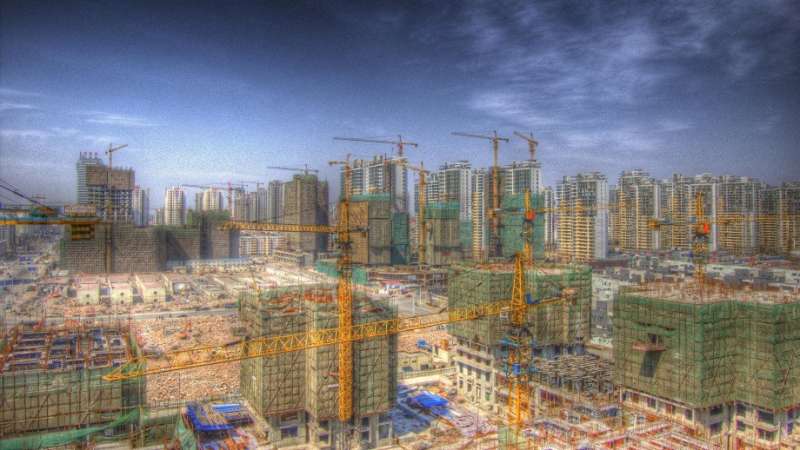Cities urged to work with scientists on climate change

An urban environment expert at ANU has warned that city councils acting alone to address climate change, in the absence of an evidence-based systems approach, can have unintended consequences.
Professor Xuemei Bai from ANU and other urban experts from around the world identified six research priorities for cities and climate change in a Nature comment piece.
They also called for a stronger collaboration between scientists, urban policy makers and practitioners, ahead of the Intergovernmental Panel on Climate Change (IPCC) Cities and Climate Change Science Conference in Canada next week. "Cities are open, complex, dynamic systems with a global reach," said Professor Bai, an urban environment and human ecology expert at the ANU Fenner School of Environment and Society.
"Well-intended local actions can displace issues to other sectors or into the future. One city's crack-down on energy-intensive production might shift the problem to less-regulated regions, with no net effect on global emissions."
The Conference aims to develop a shared global research agenda on cities and climate change, bringing together over 700 researchers, policy makers and practitioners from more than 80 countries.
Professor Bai said cities were increasingly feeling the effects of extreme weather.
"Last year, more than 1,000 people died and 45 million people lost homes, livelihoods and services when severe floods hit Southeast Asian cities," she said.
"By 2030, millions of people and trillions of dollars of infrastructure globally will be at risk from flooding, drought, wildfires and other natural disasters."
Professor Bai said researchers, policymakers and city authorities needed to work more closely together to improve how cities mitigate and adapt to climate change.
"A lack of long-term studies of urban climates and their impacts makes it hard for city officials to plan decades ahead, so science needs to have a stronger role in urban policy and practice," Professor Bai said.
"A systems approach is needed to deliver on global climate change as well as the United Nations' New Urban Agenda and Sustainable Development Goals. More needs to be known about interactions, trade-offs and synergies between urban processes and their impacts elsewhere."
Professor Bai said scientific understanding of interactions between cities and climate needed to be improved.
"Climate processes are complex—more so in cities. Urban air pollution is causing heavier rainfall as fine particles influence clouds that, in turn, exacerbates flooding in cities," she said.
"We need to know how urban physical characteristics, building materials and human activities affect atmospheric circulation, heat and light radiation, urban energy and water budgets."
Professor Bai said cities were at the forefront of addressing these challenges, with many cities experimenting with innovative measures to mitigate and adapt to climate change.
"Successful practices need to be upscaled. It is important that we identify, analyse and build transferable knowledge that can help cities to learn from the front runners," she said.
Professor Bai and her co-authors recommended that city councils should establish scientific advisory boards, chaired by a chief science adviser.
"These would enhance the profile of science, build capacity and leadership, and provide a point of contact," she said.
More information: Xuemei Bai et al. Six research priorities for cities and climate change, Nature (2018). DOI: 10.1038/d41586-018-02409-z
Journal information: Nature
Provided by Australian National University




















